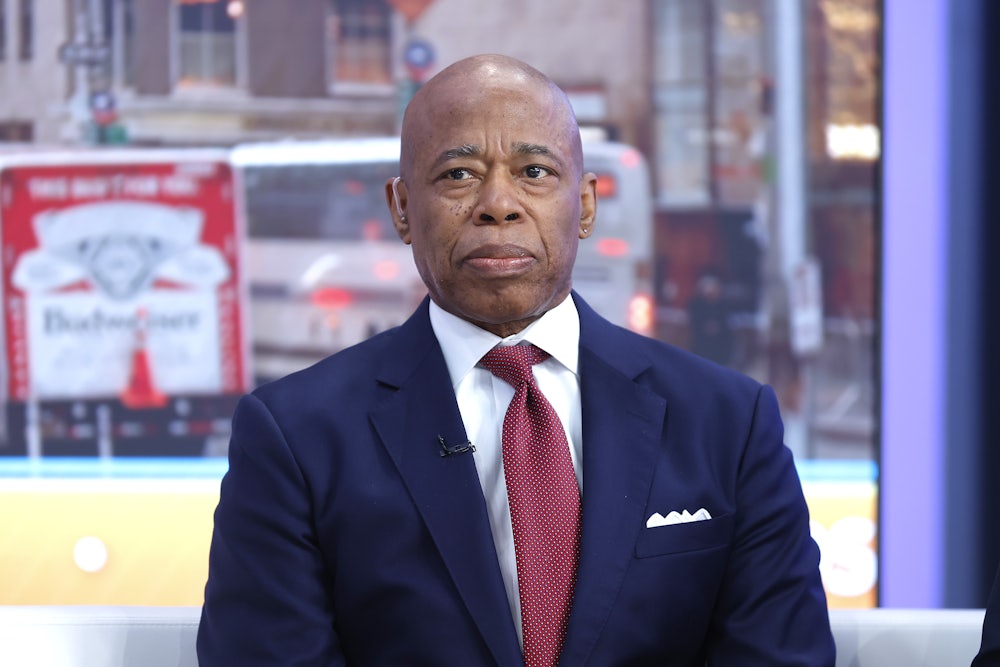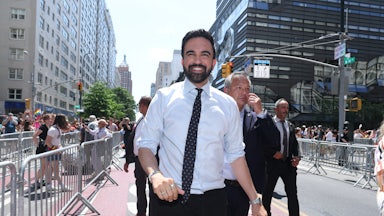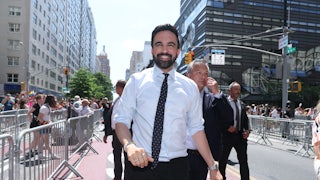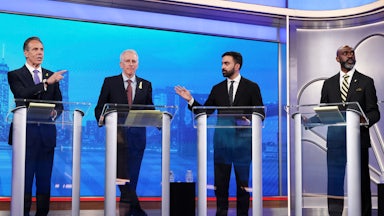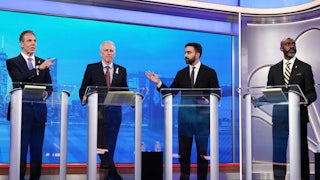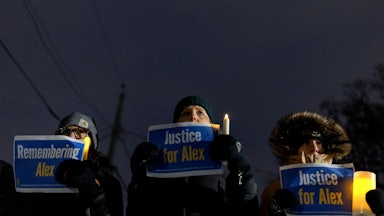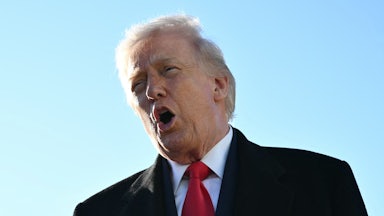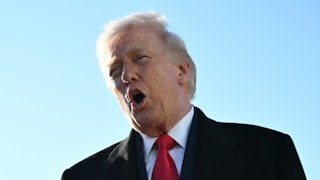The ongoing saga of the cancelled prosecution of Eric Adams contains multitudes. Perhaps the most worrisome aspect is the way it highlights the new, renegade Department of Justice that Donald Trump is running and his administration’s overarching attempt to eliminate any remaining independence among federal prosecutors—the better to weaponize the agency’s considerable resources against the president’s political enemies. Naturally, it’s also about a mayor allegedly abusing his office so that he could remain in power for yet another term—and how that corruption led to the current arrangement, where the Trump administration has essentially purchased a big-city mayor and the municipal government he runs.
But there is an undersung aspect to this whole affair that represents an unfolding threat against democracy. The Adams flap was always about far more than simple airplane upgrades, or about a White House bending American prosecutors to its will. It is, at its core, about whether or not foreign regimes and foreign actors can personally bankroll American politicians—and about whether or not an administration as drenched in shady foreign funding as Trump’s will remove the last, best block against foreign dictatorships directly financing American officials.
After all, this is what Adams himself stood formally accused of: soliciting, accepting, and even directing the payments of foreign monies into his personal kitty, all so that he could continue as New York mayor. Just look through the federal indictment that the Trump administration is now casting into the dustbin. According to federal prosecutors, Adams scrabbled high and low in an attempt to obtain as much Turkish funding as he could. When a Turkish national offered to bankroll Adams–despite the fact that, as the foreign funder told an Adams staffer, “Fundraising in Turkey is not legal”—his staffer initially demurred, saying they thought Adams “wouldn’t get involved in such games.”
How wrong they were. Once the staffer relayed the funding plot to Adams, the mayor “directed” that his staffer “pursue the [Turkish national’s] illegal scheme.” As the indictment details, Adams “welcomed the offer of foreign contributions.” Nor was Adams especially far into his tenure when he allegedly decided to toss the door open to foreign monies; according to the federal indictment, this all took place a mere 10 days into his stint as New York mayor.
It’s not difficult to see why Adams’s Turkish contacts allegedly funded him. In addition to green-lighting the biggest Turkish consulate in the world—burnishing the reach and reputation of Turkish autocrat Recep Erdoğan in the process—one of Adams’s Turkish contacts, who agreed to “contribute $50,000 or more” to Adams’s mayoral campaign, said he “believe[ed] that Adams might one day be the President of the United States and [was] hoping to gain influence with Adams.”
Given that Adams is hardly guaranteed reelection as New York mayor, his likelihood of someday ascending to the presidency seems a stretch. But you can see the logic of Adams’s Turkish contacts at play: For pennies on the dollar, they could pocket a rising political star, getting in on the ground floor with someone who, by all appearances, did not care one bit that he was crossing the reddest of red lines for American politicians.
The better question is why Adams himself allegedly went along with—and even personally steered—these foreign funding operations. Part of it was surely related to the lack of prosecutions in this space; before Adams, no mayor in America had ever been indicted on federal charges of foreign funding. But then again, maybe the answer is obvious. As Adams told a supporter, “You win the race by raising money.… Have to raise money. Everything else is fluff.”
In that sense, the Adams case isn’t just about foreign regimes suddenly eyeing new ways to flood American campaigns with cash—it’s about the fact that American campaigns can be flooded with cash, period. Perhaps this was always inevitable. Given the Citizens United decision of 2010, which effectively lifted spending caps on American elections, perhaps it was always just a matter of time before candidates and foreign officials alike realized there were even more campaign dollars to be tapped abroad, instead of just among deep-pocketed Americans.
This is the trajectory that other elements of America’s kleptocratic transformation have followed. Anonymous shell companies in Delaware and perpetual trusts in South Dakota were initially geared toward American clients—before foreign regimes realized they could take full advantage, injecting billions (if not more) in illicit wealth directly into the American economy. Lobbying firms in Washington were initially geared toward American politicos—before foreign regimes realized they could take full advantage, steering American lobbyists toward whatever the regimes footing their bills needed to remain in power, and shift American policy to their advantage.
With Adams, as well as the Trump administration’s moves to drop the case and gut any remaining independence out of the Department of Justice, damn the consequences, we have perhaps arrived at the logical endpoint of these arrangements. Trump is, as everyone is fully aware, the American president with far and away the most foreign financial entanglements, from his Trump Organization inking new deals in places like Oman and Vietnam to the Saudi-backed LIV Golf hosting tournaments at Trump properties, to all of the ways foreign regimes can back Trump’s new memecoin. And that’s not even including all of the ongoing questions about, say, whether the Egyptian dictatorship plowed millions of dollars into Trump’s first campaign—helping launch Trump to the White House in the first place.
It’s unlikely we’ll ever get an answer to the latter point because Trump, in less than a month into his second term, has decimated all of the United States’ remaining anti-corruption credentials. But it would hardly be surprising if Cairo did so, not least because the Egyptian dictatorship was recently outed as secretly bankrolling one of America’s most prominent senators—a man who realized, allegedly alongside Adams, just how much boodle could be made by opening the doors of American politics to foreign regimes’ dirty money.
This is a reality that American politicians, led by Trump and Adams, will only rub in Americans’ faces more and more in coming years. And a vicious cycle may be slouching toward Washington to be born, as other American politicians realize that, moving forward, in order to keep up with their opponents’ spending, they’ll have to look to non-American sources of their own just to keep pace. It will be an accelerating downward spiral, with no bottom in sight.
Lifting any consequences for Adams’s alleged malfeasance—eliminating any costs for Adams allegedly succoring foreign regimes and tapping into the bottomless pool of dirty money sloshing around the world—means that other politicians around the country, and regimes around the world, will only come to one, inescapable conclusion. The days of prosecutors targeting American officials who accept foreign funding are over. The days of American elections being funded, and decided, by Americans are done. A new era is dawning, all thanks to Eric Adams, and the corrupt president who came to his rescue.
